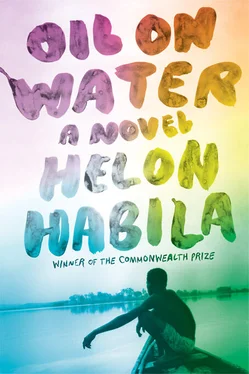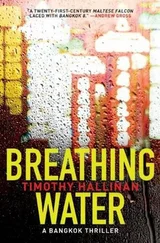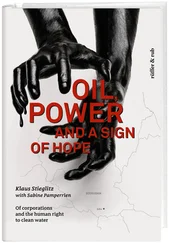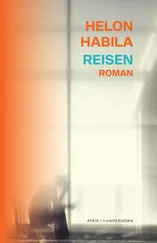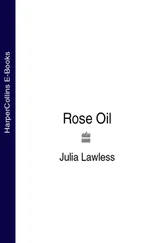ZAQ. JOURNALIST. AUGUST 2009. RIP
There were over a dozen new graves surrounding Zaq’s, their mounds rising like freshly prepared furrows in a field, raw and dark and fecund, waiting for seeding. I sat in the dirt and stared for a long time at the simple grave, not sure what to do. I wished I had a bottle of his favorite Johnnie Walker so I could pour him a libation. I wondered what he would have made of it all, he who had traveled so far, and seen so much, and suffered so much, only to end up in this strange place, with such a plain epitaph. I remembered he once told me of his time in Ouagadougou. It was in the last days of General Abacha, when the pressure on journalists and pro-democracy activists was at its most fervent pitch, and Zaq had escaped to Burkina Faso to lie low, to wait for Abacha’s inevitable downfall. He was telling me this the day after we had dug up the empty grave, the day Naman had forbidden us to leave the island. He was drinking, lying on his mat, staring at the ceiling, and he asked me, as he always did, Did you ever think in your wildest moment that you’d be here, in this hut, detained by some nature-worshipping priest? Ah, such is life. Of all the places I have been to, only one place still stays in my mind. You can’t guess where, not in a million years.
— London? New York? Paris? Johannesburg?
— No. Nothing so fancy. Ouagadougou. If I could return to any one period in my life, one place, it would be Ouagadougou.
— Ouagadougou? Why?
— I met a woman there, and we lived together for four months.
And he closed his eyes, his face pointed at the roof, and I waited and waited for him to go on, but he didn’t. The smile stayed on his lips till he fell asleep. Perhaps he was there right now, in Ouagadougou, taking a last detour to revisit friends before passing on to eternity, wherever that is.
I PASSED THE TWO MEN on my way back, and once more they paused and nodded to me, and I nodded back. Boma was waiting for me at the edge of the sculpture garden. She was wearing the long white robe. I stopped and pointed at the robe.
She looked well. There was a smile on her face.
— Well, you look healthy, happy.
— I’m happy to see you back in one piece. You left without telling me.
— I’m back now.
— And the white woman?
— She’s still there. I have a message for her husband from the kidnappers.
— Will she be all right?
— Yes. I’ll meet with her husband today, and I’m sure he’ll do the right thing. We have only a few hours before the ferry gets here. You have to get ready.
She turned and looked toward the shrine, where a few worshippers were beginning to line up, getting ready for their morning procession to the sea. She turned back to me.
— I’ve made up my mind to stay.
— Stay here?
She nodded. — I like it here, I like the people and I can feel myself relaxing in a way I haven’t in a long time. My spirit feels settled.
— Well, if you’re sure. .
She came forward and hugged me, then she left to join the procession. I made my way to the little hill overlooking the sea. The ferry wouldn’t be here till afternoon. Gloria and I would have lunch with Boma and Naman before we left, but until then I would sit and watch, perhaps for the last time, the worshippers procede to the water. In the distance, at the edge of the clearing where the huts began, I saw a portly figure in a white jacket talking to Gloria; it was Dr. Dagogo-Mark.
Far away on the horizon the flares were still sending up smoke into the air, and for a moment I imagined, somewhere on the river, a refinery up in flames, sabotaged by the Professor and his men — if nothing had happened last night to stop them. I imagined huge cliffs of smoke and giant escarpments of orange fire rising into the atmosphere, and thousands of gallons of oil floating on the water, the weight of the oil tight like a hangman’s noose around the neck of whatever life-form lay underneath. I thought of Isabel out there in the forest, waiting. She might not have long to wait. This could all be over by tomorrow, and then a period of mental healing would begin for her, but by then she would be somewhere far away, among her people. A fortnight hence and she’d look back and this would all be nothing but a memory, an anecdote for the dinner table. And her husband, James Floode, I wondered what his future plans were: but I would have a chance to ask him later today when I saw him.
Now the worshippers were in the water, swaying and humming; I strained my eyes, trying to determine which of them was Boma. She’d be happy here, I was sure. This was a place of healing and soon she’d forget John, her scars would recede to the back of her mind and one day she’d look in the mirror and see they were gone. I had felt the same optimism days ago when I looked back from the militants’ boat at Chief Ibiram and his people. They were a fragile flotilla, ordinary men and women and babies, a puny armada about to launch itself once more into uncertain waters. That day I didn’t get a chance to wave goodbye to them: Tamuno and Michael and Ibiram and Alali and all the nameless ones. Now, alone on the hill, I raised my hands and waved and waved — down below someone waved back, it looked like Boma, but it was too far to say for sure. I turned and began my descent.

Born in Nigeria, Helon Habila was working as a journalist in Lagos when his first work of fiction, Waiting for an Angel (written at night, often by candlelight during frequent electrical outages), won the international Caine Prize for African Writing. Waiting for an Angel has been translated into many languages — including Dutch, Italian, Swedish, and French — and it went on to win the 2003 Commonwealth Writers Prize. Habila’s second novel, Measuring Time (2007), won the 2008 Virginia Library Foundation Fiction Award and was shortlisted for the 2008 Hurston/Wright Legacy Award. His short story “The Hotel Malogo” won the Emily Balch Prize and was selected for The Best American Nonrequired Readin g anthology.
Habila has been a Radcliffe Fellow at Harvard University, an International Writing Fellow at the University of Iowa, the Chinua Achebe Fellow at Bard College, and the African Writing Fellow at the University of East Anglia in the UK. He is the coeditor of the British Council’s anthology New Writing 14 (2006) and is currently editing The Granta Book of the African Short Story . He is also a contributing editor to the Virginia Quarterly Review . He teaches creative writing at George Mason University and lives in the Washington, DC, area with his family.
